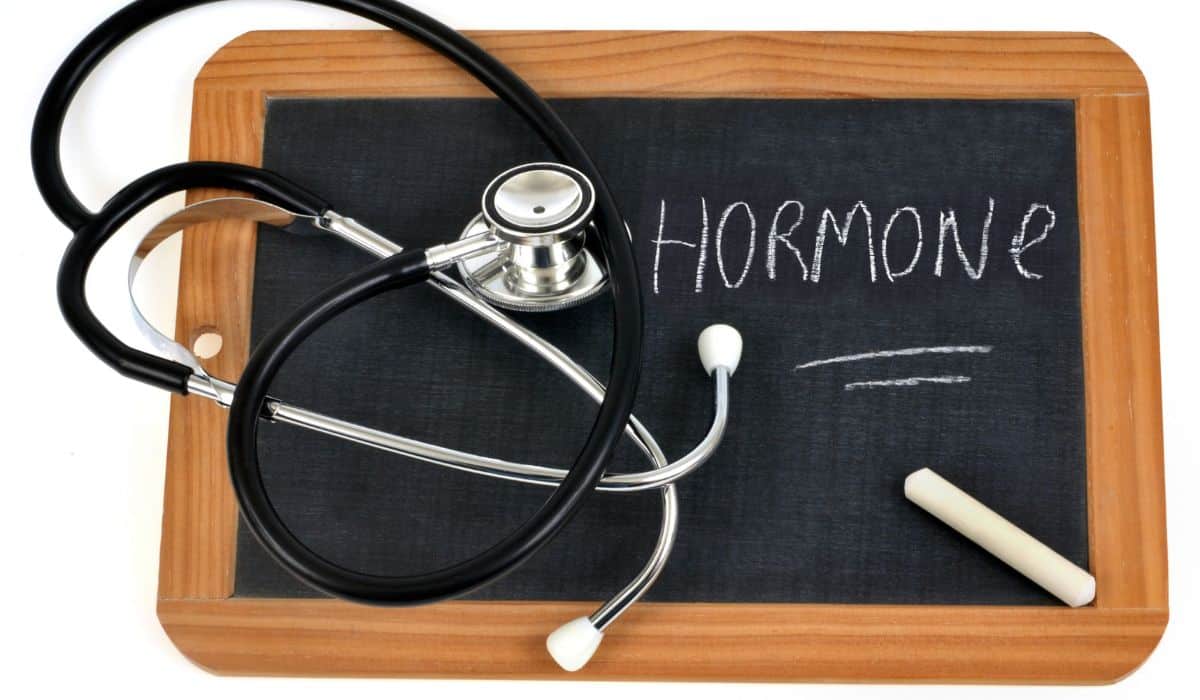
When it comes to hormone health, it’s easy to get caught up worrying about foods to avoid. Depending on who you ask, you might hear to avoid soy, avoid legumes, avoid excess sugar, avoid Omega-6 fats, avoid junk food...all of which are probably good practices! But it’s hard to find information about what to emphasize or include in your diet for hormone health.
To start with: what’s “hormone health”? All of us have hundreds of hormones and going through them all would take all year! So when we say “hormone health,” which hormones are we talking about?
Here, we’ll focus on insulin (which does a lot of things, most notably carb storage), cortisol (the “stress hormone”), and thyroid hormones (which regulate metabolic rate).
If you had to make a list of all the hormones that get messed up by the modern diet and lifestyle, these three would be right at the top. And they get thrown out of whack in ways that are all tied up in modern chronic diseases like diabetes/metabolic syndrome (which are all about insulin problems), irritable bowel syndrome and other stress-related disorders, obesity, and fatigue. So the healing of these particular hormones is relevant to a lot of people’s real lives.
Even better, a lot of the same foods are good for all three. Take a look at five of them below:
1.Fermented foods
Fermented foods include kimchi, sauerkraut, kombucha, and yogurt/kefir if you do dairy. The benefit of fermented foods is that they’re full of probiotic bacteria – basically you’re bringing in a bunch of friends to join the helpful bacteria that already live in your gut.
Probiotics are great for hormone health in all kinds of ways. To start with insulin, in this study, the researchers took healthy people and over-fed them on a junk-food style diet. One group got probiotics; the other group didn’t. The non-probiotic group started developing serious insulin resistance - exactly what you’d expect, but the probiotic group was protected against insulin resistance, even during overfeeding
Probiotics also help reduce spikes of the stress hormone cortisol during stressful experiences. For example, in this study, researchers tested students during an exam period. Students who got a probiotic had a lower cortisol spike in response to the exam, indicating that probiotics can help moderate the hormonal stress response.
In rats and mice, probiotics also show some benefits for thyroid hormone health. The mechanisms of all these benefits are complicated, but without going deep into the weeds, it’s pretty clear that probiotics are a win for hormone health.
2. Butter (if you can do dairy)

The usual disclaimers apply: dairy isn’t for everyone and some people have a bad reaction even to butter. But a lot of people can tolerate butter fine, and if that’s you, there are some big benefits.
The most obvious hormonal upside of butter is that it’s rich in saturated fat: fat, and especially saturated fat, is essential for testosterone production.
But it’s even more notable that dairy fat specifically (not just saturated fat in general) has been widely recognized as a positive for insulin sensitivity. In this article, the researchers concluded that the specific fats found in dairy foods are good for insulin sensitivity and healthy insulin action. And full-fat dairy, but not low-fat dairy, is associated with a lower risk of metabolic syndrome.
3. Vitamin D (probably as a supplement)
Vitamin D is in some foods, but unless you eat a lot of fatty fish, you probably won’t get enough vitamin D just from diet alone. You can also get it from sun exposure, but realistically speaking, most people don’t get enough sun every day. That leaves supplements as a popular choice - and if you’re considering a supplement, “hormone health” should be on the list of pros.
Vitamin D insufficiency reduces insulin sensitivity by changing the function of the cells that produce insulin in the pancreas. In other words, to produce insulin properly, you need enough vitamin D. The benefits of vitamin D for insulin sensitivity are really clear in this study: pregnant women who took a vitamin D supplement had better insulin sensitivity than women who were similar in other ways but didn’t get a supplement.
Vitamin D is also important for thyroid hormones. Even in healthy people, seasonal fluctuations in vitamin D affect levels of thyroid stimulating hormone (TSH), and vitamin D deficiency is associated with autoimmune thyroid disorders. A study on healthy subjects found that vitamin D supplementation enough to raise vitamin D levels to at least 125 nmol/L reduced symptoms of hypothyroidism (in people who already had it) and the risk of developing hypothyroidism (in people who didn’t). The researchers concluded that “Vitamin D supplementation may offer a safe and economical approach to improve thyroid function and may provide protection from developing thyroid disease.”
4. Red meat
Why red meat in particular? For one thing, just like butter, red meat is rich in saturated fat. But there are two extra reasons why red meat is good for hormone health: the B vitamins and the zinc.
B vitamins
B vitamins have been linked again and again and again to better insulin sensitivity. In this study, researchers found that folate and B12 supplements reduced insulin resistance and improved insulin function in patients with metabolic syndrome. And it’s not just B12. Some research has linked deficiency of folate to hyperthyroid disorders, and vitamin B6 also helps to regulate the activity of genes that respond to dozens of different hormones.
Zinc
On top of the B vitamins, beef and lamb, the two most popular types of red meat in the US, are rich in the mineral zinc. Zinc supplementation reduces insulin resistance and may also be helpful for thyroid health.
5. Fish (and other seafood)

Fish technically have some vitamin D, but not really enough to satisfy most people’s needs (unless you’re eating lots of high-fat fish regularly, which would be really healthy but isn’t realistic for most people).
What fish do have, even in regular dietary amounts, are Omega-3 fats. Omega3s help prevent insulin resistance in your muscles and improve your ability to store carbs in the muscles (instead of storing them as fat). Eating fatty fish rich in omega-3s (but not lean fish) improves the insulin response to blood sugar in human subjects.
Fish and other sea foods (seaweed is especially good!) are also rich in iodine. Iodine is essential for thyroid hormone production, and iodine deficiency stops you from making enough thyroid hormone (this is particularly critical during pregnancy). Megadoses of iodine aren’t helpful , but getting enough of it from diet should be a priority.
It’s Not About a Magic Food
Lists of “X foods for Y problem” can sometimes give the impression that adding or replacing specific individual foods will revolutionize your health. But if you scan back up that list of foods, the big picture is “high-quality animal foods, healthy fats, and gut support.” The point here isn’t to point out five magic foods (or even worse, a dozen magic nutrients). It’s about pointing out a diet pattern that has benefits for insulin sensitivity, thyroid hormone health, and cortisol regulation.
To that end, one more study. In this study, researchers put children with mild hypothyroidism on a special diet emphasizing “green vegetables, beef, full fat milk, and butter.” After 3 months of this, the kids had normalized levels of thyroid-stimulating hormone and improved their thyroid function. That’s an even more dramatic improvement than any of the studies above, because it wasn’t just one food: the kids had a solid overall dietary pattern full of hormone-healing foods.
So...anyone up for some steak with butter? You know, for your health!





Leave a Reply